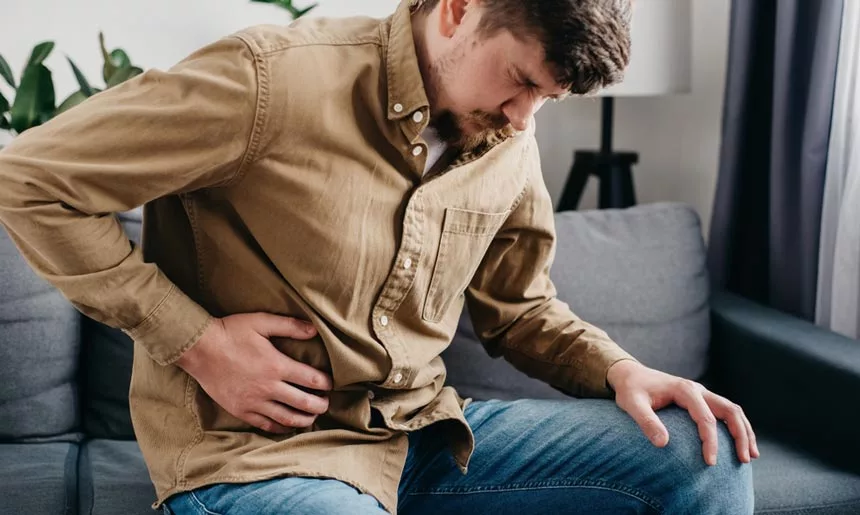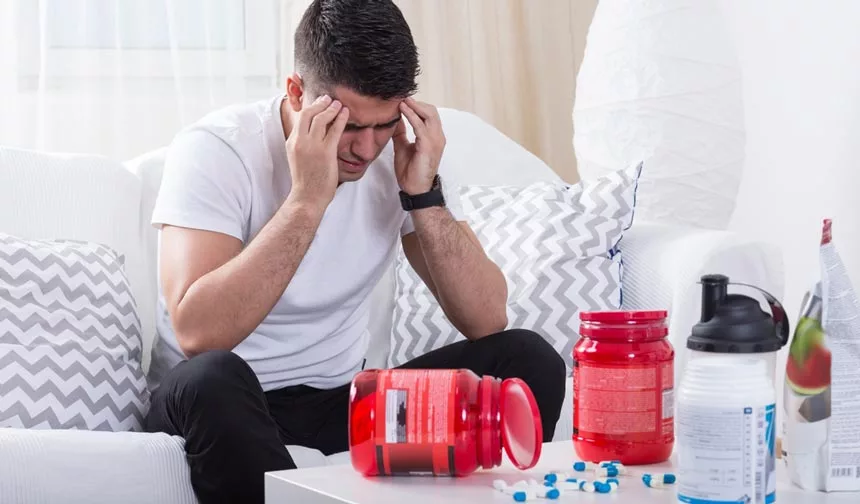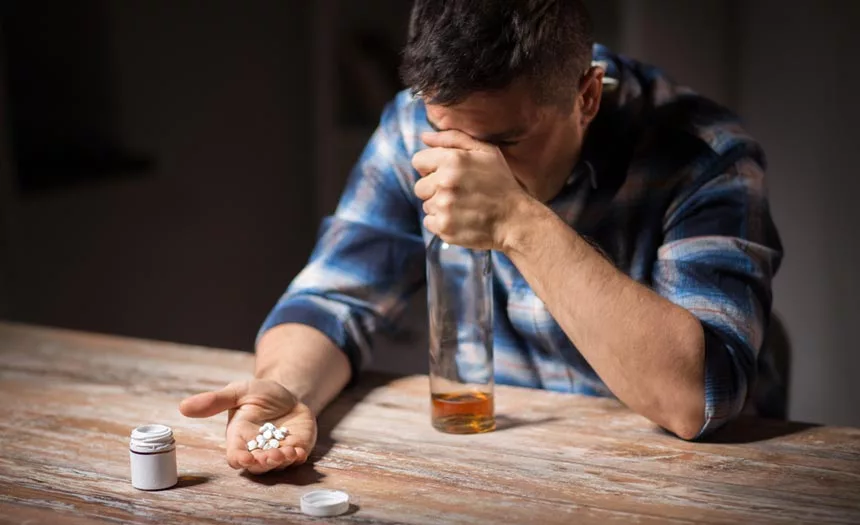Reasons to Avoid the Recovery Cliche of Using Steroids
Table of Contents
- Reasons to Avoid the Recovery Cliche of Using Steroids
- Steroids in Sobriety: 5 Dangers of Building Muscle Mass Fast
- The Long Term Risks of Abusing Anabolic Steroids
- The Mental Aspect of Steroids in Sobriety
- Because Roid Rage is Really a Thing
- Replacing One Drug Addiction with Another
- What are Common Steroid Withdrawal Symptoms?
- What are the Treatment Options for Steroid Addiction?
- Freedom From Addiction: Found Here
It’s pretty common for a lot of people who are new to recovery to want to get back into physical shape. Studies have shown that people who exercise have higher levels of endorphins and serotonin, which definitely helps with the mood swings that can come with early sobriety.
However, there is definitely a line between getting healthy and replacing working out with a previous addiction. This can often lead to people finding out the dangers of using steroids in sobriety firsthand, with real consequences in terms of health as well as their recovery.
The issue with using steroids in sobriety comes not only in the fact that a person is physically taking, and often injecting these drugs, but also in the mental effects it has on a recovering individual’s mind.
In order to assess the risks of using steroids, whether in recovery or not, it is important to understand why people use them, and how they affect the mind and body. Keep reading to learn more about the risks of steroid abuse in sobriety, and how you can get help with Find Addiction Rehabs today.
Steroids in Sobriety: 5 Dangers of Building Muscle Mass Fast

Anabolic Steroids are synthetic variations of the male sex hormone testosterone. The word, anabolic, refers to muscle building, so these steroids are primarily used to help people put on more muscle mass and strength at a much faster rate.
For those of us who are recovering from addiction, we all know the dangers of “too much too fast” and we need to also be aware that these steroids can react in our bodies much in the same way that any other mood or mind-altering drug.
Steroid addiction is very possible, and abusing steroids can have a number of dangerous consequences for users, including:
1) Intravenous Use
Most steroid users, while maybe starting out with taking pills, can eventually lead up to injecting their steroids. There is a particular “cycle” that needs to be followed in order to achieve the most gain from them, which can really mirror a person’s attempts to control their drug abuse.
For example, using a certain amount one day, continuing to use that amount for a certain period of time, tapering off for a short period, and then getting back on again. This is often done for those who abuse steroids for competitive muscle building and improving athletic performance.
Using steroids in recovery in this way can have several negative consequences on a person’s health. When resorting to intravenous drug use, many people will not take the time to clean or make sure their equipment is sterilized.
Some users often share injection needles with other steroid users, or are often sold “dirty” steroids and can contract HIV, Hepatitis B or C, or even develop endocarditis, a bacterial infection that causes inflammation in the lining of the heart. These health consequences can become life-threatening if left untreated.
2) Cardiovascular Diseases
Anabolic androgenic steroids have been proven to increase the risk of heart attacks and strokes, even in users under age 30. This is because steroids promote muscle size and growth, and help people build body mass through interacting with particular lipoproteins in the body.
These proteins carry cholesterol through the blood and, with regular anabolic steroid abuse, this can create a buildup in the user’s arteries, resulting in a number of cardiovascular problems.
3) Damage to the Liver

Steroid abuse has been associated with liver tumors and Peliosis Hepatis, where blood-filled cysts form in the liver and can rupture, resulting in internal bleeding. The risk of this increases with long-term steroid misuse and addictive behavior.
4) Stunted Growth
Steroids can stunt growth, especially in children and adolescents. Steroids work by suppressing the production of natural hormones, including growth hormones. In particular, steroids affect the natural male hormone testosterone.
Excess production of synthetic testosterone can lead to a decrease in bone growth and development and lack of hormonal balance, which can induce delayed puberty and result in shorter height and malformed male sexual characteristics.
The risk of stunted growth is increased in children who take steroids for long periods of time or at high doses. This is further increased when mixing steroids with other substances, including alcohol abuse and other drugs.
5) Muscle Dysmorphia
Steroid use can lead to a distorted perception of the user’s physical appearance, also known as muscle dysmorphia (MD). This is a mental disorder in which a person becomes obsessed with their body image and believes that they are not muscular enough, even if they are already very muscular.
People with muscle dysmorphia often spend excessive amounts of time and money on exercise, diet, and supplements in an attempt to achieve the perfect body. They may also experience anxiety, severe depression, social isolation, and even suicidal thoughts.
This is particularly common for those who use steroids for body-building, or who are trying to lose body fat through using performance-enhancing drugs.
The Long Term Risks of Abusing Anabolic Steroids
Long-term users will also experience a variety of other side effects, which are extremely common, and can be severely detrimental to someone who is recovering from addiction. For example:
- The constant fluctuation of hormonal balances can create kidney problems, liver damage, high blood pressure, acne, etc.
- Men often experience shrinking testicles, decreased sperm count and sex drive, baldness and hair loss, development of breasts, and higher risks of prostate cancer. This occurs because the influx of testosterone will signal the natural testosterone to stop production, therein, signaling the body to increase estrogen.
- Women often experience an increase in facial and body hair, fluctuations in the menstrual cycle, and a deepening voice. The opposite pattern of hormones happens here, so the estrogen production stops, and the testosterone increases.
The Mental Aspect of Steroids in Sobriety

While Anabolics do not create an immediate feeling of euphoria in the brain, long-term users can wreak havoc on chemicals such as dopamine, serotonin, and opioid systems, potentially fatal level imbalances if a person chooses to use steroids in sobriety.
Not to mention, many people can develop or can further any eating disorders or body dysmorphia issues through the use of anabolic steroids in both men and women. The steroid “cycle” is usually followed by a “cutting” period, where a person reduces excess fat by introducing a stimulant.
Some people also binge and purge, continuing an unhealthy pattern of physical and mental destruction. Abusing steroids can cause many health problems, as well as create various personal triggers for users in the long term.
Because Roid Rage is Really a Thing
We are all familiar with the phrase, that a person who uses steroids can be quick-tempered or go through crazy mood swings and have episodes of ‘roid rage.’ Anabolic steroids in sobriety are so dangerous because they can create feelings of paranoia, irritability, delusions, and impaired judgments.
For those of us in recovery, we already have enough difficulty getting back on our feet mentally and emotionally. Adding on a whole other level of crazy, especially in conjunction with any prescriptions we might be taking for anxiety, depression, bipolar, etc., can be extremely detrimental to our sobriety.
For the most part, many people who are taking steroids in sobriety, are obtaining them through a friend, a coworker, a gym buddy, or a street dealer. This means it is illegal, and it is something that, if they are working in a program, they know is wrong for their sobriety.
This could bring on feelings of guilt and shame, while also bringing the conflict that it is giving them the desired effect they were looking for. This is far too similar to the same behavior patterns they were utilizing during their addiction, and can lead to relapse.
Replacing One Drug Addiction with Another

Another danger is the fact that we, as addicts, are pretty much guaranteed to abuse anything that gets us instant gratification. For someone who has replaced their drug addiction with one of physical fitness, using steroids in sobriety can pretty much be equivalent to taking an Adderall for study purposes or using any other drug for gratification.
It may not seem like the biggest deal, especially for people who were low-bottom drunks or hard drug users. But steroids can have serious consequences for those in recovery, which is why someone who is struggling with this substance should talk to his or her doctor or addiction specialists about how they can stop using.
What are Common Steroid Withdrawal Symptoms?
When frequent users choose to stop, or if they run out of their supply, they will experience withdrawal symptoms that are eerily similar to the more well-known drugs that they may have used in the past.
Those who are experiencing withdrawal symptoms often report side effects such as:
- Fatigue
- Loss of appetite
- Sleep Disturbances
- Cravings
- Decreased Libido
- Depression
Because of this, it is common for many people, especially those who have been taking steroids in sobriety, to turn to other forms of medication to combat these side effects, which can lead many recovering addicts to a relapse.
What are the Treatment Options for Steroid Addiction?

Steroid addiction is a serious problem that can have a devastating impact on a person’s life. If you or someone you know is struggling with steroid addiction, there are treatment options available.
The type of treatment that is right for you will depend on your individual needs and circumstances. Some common treatment options include:
- Inpatient treatment: This type of treatment involves staying in a residential facility for a period of time, usually 30-90 days. During this time, you will receive round-the-clock medical supervision and care from a team of professionals, including doctors, nurses, therapists, and counselors.
- Outpatient treatment: This type of treatment allows you to continue living at home while receiving treatment from a therapist or counselor. Outpatient treatment can be a good option if you have a job or other commitments that make committing to a residential setting difficult.
- Medication-assisted treatment: In some cases, you will be prescribed medications to help assist with your recovery process. Medications such as naltrexone and acamprosate can help to reduce cravings and withdrawal symptoms and provide pain relief.
- Support groups: Support groups can provide a safe and supportive environment for people with steroid addiction to connect with a recovery community and people who understand what they are going through. There are many different types of support groups available, including online and in-person groups.
- Behavioral therapy: Participating in different therapeutic interventions can help you understand the underlying causes of your substance abuse, and develop healthier coping mechanisms and life skills for maintaining sobriety.
Freedom From Addiction: Found Here
If you or a loved one is suffering from alcoholism or addiction, understand that you are not alone in your struggles! If you are ready to change your life and finally be free of your addiction, then Find Addiction Rehabs can help.
Our treatment advisors can give you the jump-start you need in order to experience the recovery you have always wanted through placement at rehab facilities matched to your needs. Give yourself a break and reach out to our team of recovery representatives for a confidential call today!
Charles F. has been an active part of the Florida recovery community for over 5 years. He began as a behavioral health technician at an addiction treatment facility in Ocala, Florida and has since begun training as a Licensed Addiction and Chemical Dependency counselor in Boca Raton. Charles’ passion involves the promotion of recovery and helping spread the hope of recovery to as many readers as possible!


